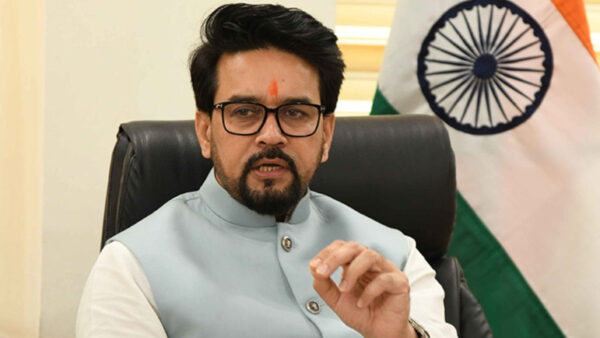News
The crisis in congress
The Indian National Congress, the largest and oldest political party in India, has been facing a leadership crisis in recent years. This crisis has been fueled by differences between various factions within the party, as well as a decline in the party’s popularity and electoral success. There have been calls for a change in leadership, with some members calling for a younger, more dynamic leader to take the reins. Additionally, there has been infighting within the party over issues such as alliances with regional parties and the direction of the party’s policies. These internal issues have weakened the party and contributed to its declining influence in Indian politics.
The leader
Rahul Gandhi is an Indian politician who is a member of the Indian National Congress Party and the former President of the party. He was born on June 19, 1970, in New Delhi, India, and is the son of late former Prime Minister of India, Rajiv Gandhi, and Sonia Gandhi, who is also a former President of the Indian National Congress Party.
Rahul Gandhi has been involved in Indian politics for over a decade, serving as the general secretary of the All India Congress Committee and later as the Vice President of the party. He has been a member of the Lok Sabha, the lower house of the Indian Parliament, representing the constituency of Amethi, Uttar Pradesh. During his political career, Rahul Gandhi has been a strong advocate for issues such as rural development, women’s empowerment, and reducing the wealth gap in India.
Despite his political background, Rahul Gandhi has faced criticism for his leadership style and his political strategy. Some political commentators argue that he has not been able to connect with the Indian electorate, especially in comparison to his charismatic father and grandmother, who were both former Prime Ministers of India. Despite these challenges, Rahul Gandhi remains a prominent figure in Indian politics and continues to play an active role in the Indian National Congress Party.
Challenges for congress
There are several reasons why the Indian National Congress has been losing elections in recent years:
- Lack of strong leadership: The party has faced criticism for a lack of clear and charismatic leadership. There have been calls for a change in leadership, with some members calling for a younger, more dynamic leader to take the reins.
- Infighting and factions: There has been infighting within the party over issues such as alliances with regional parties and the direction of the party’s policies. This internal conflict has weakened the party and made it less effective in pursuing its goals.
- Failure to connect with the electorate: The party has been accused of being out of touch with the changing needs and aspirations of the Indian people, especially in rural areas. This has led to a decline in its popularity and electoral success.
- Loss of traditional vote bank: The party has seen a decline in support from its traditional vote banks, such as farmers, the Dalit community, and other marginalized groups.
- Anti-incumbency: The Congress Party has been in power at the national level for several decades and has faced growing discontent with its performance, leading to a strong anti-incumbency sentiment among voters.
- Competition from regional parties: The Congress Party has faced increasing competition from regional parties that have gained popularity in specific states, drawing away support from the national party.
- Corruption scandals: The party has been implicated in several corruption scandals, including the 2G scam, Commonwealth Games scam, and the Adarsh Housing Society scam, among others. This has eroded public trust in the party and damaged its image.
- Economic policies: The Congress Party has been criticized for its handling of the economy, particularly for its inability to create jobs and stimulate economic growth.
- Hindutva wave: The rise of Hindutva as a political force in India, represented by the Bharatiya Janata Party, has resulted in the Congress Party losing support among Hindu voters.
These are some of the major reasons why the Indian National Congress has been losing elections in recent years. Despite these challenges, the party continues to play an important role in Indian politics and remains a significant player in the country’s political landscape.
What is next for congress?
It is difficult to predict the future for the Indian National Congress, as it is influenced by a variety of factors such as internal party dynamics, political developments, and public sentiment. However, here are some possible scenarios that could shape the future of the party:
- Revival of the party: The party could work to address its internal issues, connect with the electorate and rebrand itself to regain public support. This could lead to a revival of the party and a resurgence in its electoral fortunes.
- Merger with other opposition parties: The party could form alliances with other opposition parties in order to increase its strength and competitiveness. This could result in a stronger, unified opposition that is better able to challenge the ruling party.
- Continued decline: The party could continue to struggle with infighting, lack of strong leadership, and failure to connect with the electorate, leading to further decline in its popularity and electoral success.
- Emergence of new leaders: New leaders could emerge within the party and provide a fresh direction and vision. This could rejuvenate the party and help it regain public support.
These are some of the possible scenarios that could shape the future of the Indian National Congress. Ultimately, the future of the party will depend on how it addresses its internal issues, connects with the electorate, and responds to the changing political landscape in India.





